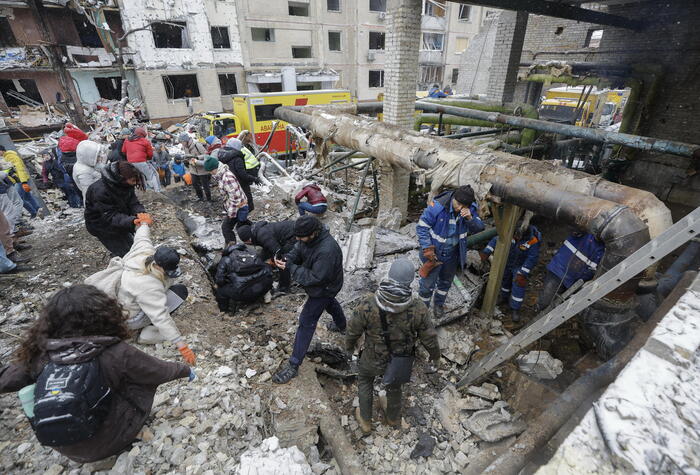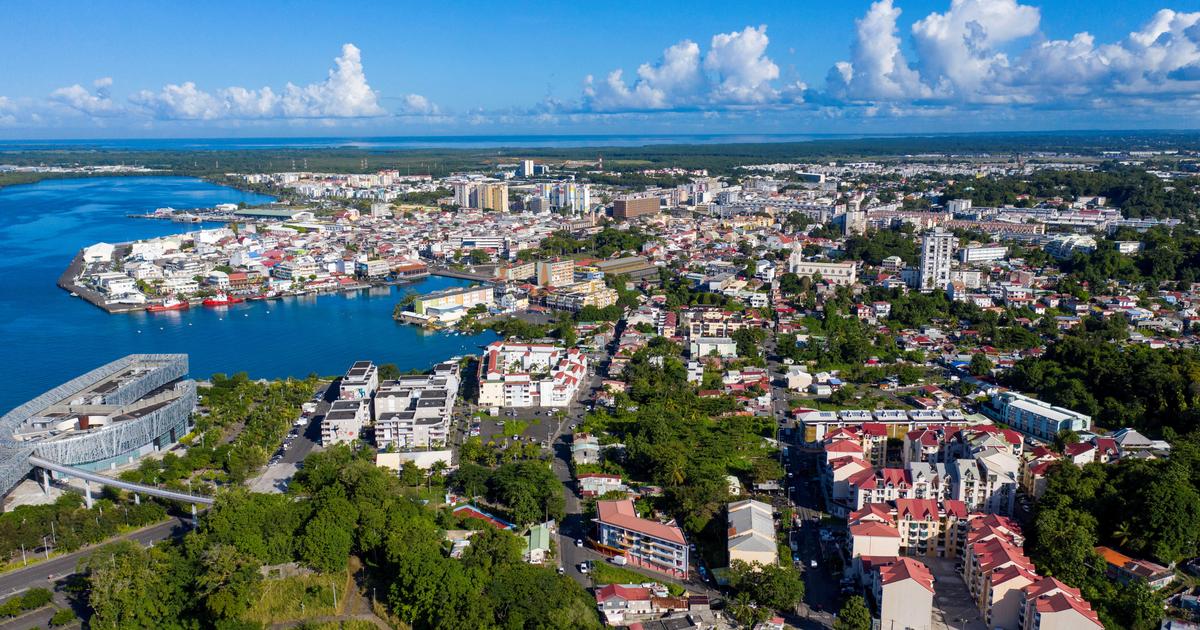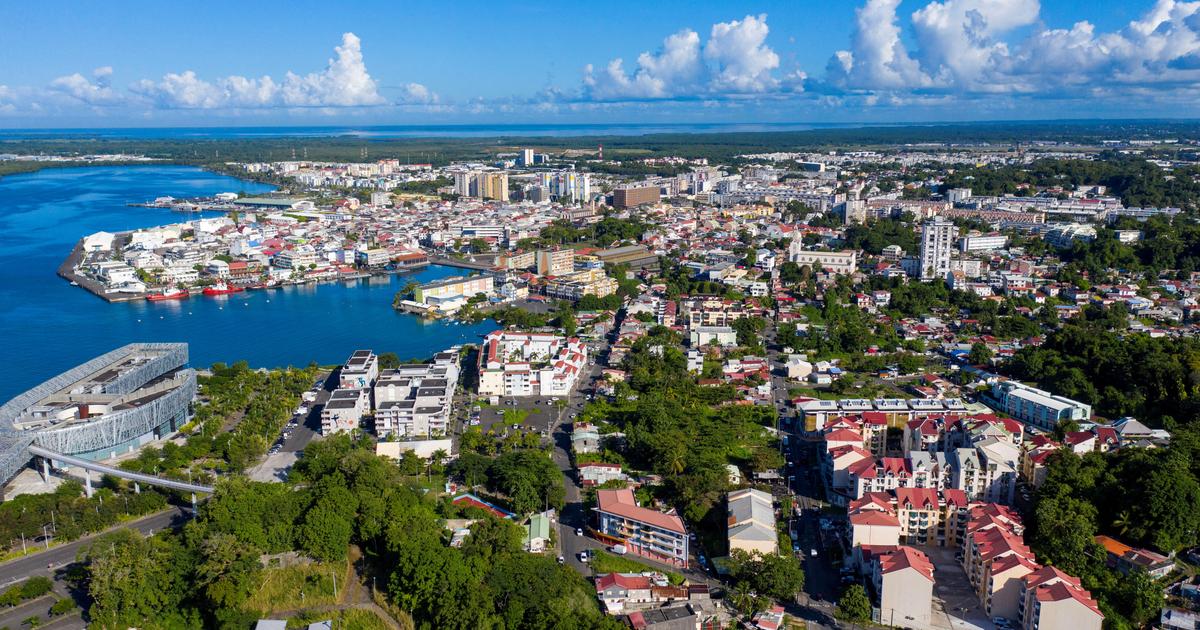Attack underwater?
The war enters a new phase, a phase of confusion.
So far, the actions, if you can say that in a war, were understandable: attacks, territory gains, counterattacks, recaptures.
What was left was destruction and suffering.
Now comes the uncertainty.
On Monday, the two natural gas pipelines Nord Stream 1 and Nord Stream 2 suffered major leaks.
Measurements of the vibrations and the sudden drop in pressure indicate that explosions damaged the tubes.
Even if investigations into the incident are still ongoing,
the federal government is not alone in assuming an act of sabotage, which experts estimate could only be carried out by a state actor given the immense effort involved.
As SPIEGEL learned yesterday from security circles, the US secret service CIA had already warned the federal government of precisely such an attack in the summer.
Didn't the chancellery take this warning seriously?
As is usual in secret service cases, the federal government did not want to comment on the research.
Whoever the perpetrators are in the background, they have achieved one goal: chaos and confusion.
Because no matter who is responsible for the destruction,
the convincing motive is missing:
Who could have an interest in damaging pipelines that are currently not in operation?
Gas prices rose again yesterday after news broke of the massive gas spill in the Baltic Sea.
Was that a target of the alleged saboteurs?
Or did you just want to warn?
Look what we're capable of!
The increasingly loud murmurs about possible nuclear strikes by Russia fuel the feeling that the already brutal war could get completely out of control.
Experts believe that a nuclear attack beyond the war zone is less likely.
However, it is not out of the question that in the event of further setbacks Putin could send out a warning with bombs of lower explosive power, the so-called tactical nuclear weapons.
The war loses its traceability.
This makes it even less calculable than before.
And therefore more dangerous.
Pressure Drop in Nord Stream Pipelines: What is Known About the Gas Leaks
You can find more news and background information on the war in Ukraine here:
That happened at night:
The Kremlin celebrates the alleged results of the sham referendums.
Selenskyj finds clear words in front of the UN.
The Taliban do business with Moscow.
The overview.
Chancellor about the head of the Kremlin: "Putin is making mistakes after mistakes."
Olaf Scholz calls the Russian mobilization an "act of desperation."
Seized oligarch yacht "Axioma" changes hands for 37.5 million dollars:
63 bids were received for the luxury yacht "Axioma" of the Russian oligarch Dimitri Pumpiansky.
Now the highest is certain - and with it the new owner.
Like silent mail, only angry:
In an interview, CDU leader Merz first spoke of “social tourism” by Ukrainian refugees – then apologized for his formulations.
How did this communication breakdown come about?
States vs. federal government minus chancellor
Actually, Olaf Scholz wanted to hold another MPK in the Chancellery today with the heads of the federal states, a
prime ministerial conference
.
Above all, it should be about money, about financing issues: for the third relief package, for a possible gas price brake, for the successor to the nine-euro ticket, for the care of the refugees.
The chancellor is in the chancellery, but cannot receive guests.
Scholz isolated himself with Corona in the chancellor's apartment there,
the round was postponed to next week
.
What the government headquarters might not find so bad, there is still room to solve the big knot in the question of gas surcharge and gas price brake - and above all
the riddle of how all this is to be financed
.
It is estimated that effective intervention in the gas market could cost the federal government well over 100 billion euros.
The Prime Ministers will meet this Wednesday, without Scholz,
at the North Rhine-Westphalia State Representation in Berlin.
Evil tongues in the SPD claim that NRW Prime Minister Hendrik Wüst (CDU) does not want to give up his last appearance as MPK chairman before he has to hand over this office to Stephan Weil (SPD), the Prime Minister from Lower Saxony, on October 1.
Evil tongues at the Union claim that Scholz only wanted to postpone the meeting to enable the party friend from Hanover to make a big appearance during the election campaign.
I don't believe in either of these two theses, because I doubt that such an appearance could be a big boost to our image.
On the contrary:
At the meeting between the federal and state governments, the potential for disputes is huge.
The countries of the Union, it is said, want to push through a staggering of the energy price flat rate, as well as an increase in child benefit from the third child onwards.
They want to talk about hospital financing and regionalization funds and basically think that the federal government should contribute much more to the common costs.
Some heads of SPD-led countries also think so, but at the same time they are also obliged to show solidarity with the chancellor.
It should be a lively meeting, even without Scholz.
Expensive energy: what the gas price cap should bring
The scandal election
Almost exactly a year ago, on September 26, 2021, the annual Berlin Marathon took place in the capital, and at the same time several elections were held: the Bundestag, the House of Representatives, the twelve district assemblies, and a referendum was also voted on.
There was a lot going on in the city, too much for the organizers of the election.
At that time I stood in line for 45 minutes before I could make my crosses, others had to wait much longer.
Wrong ballot papers were delivered, they went out elsewhere, and although the first forecasts and projections were delivered at 6 p.m., voting continued for hours in Berlin, sometimes until 9 p.m.
There were breakdowns in almost 200 polling stations
, in 14 of them the first and second votes were so close together that one or the other election victory was possibly only possible because of the irregularities –
a Berlin day of chaos
.
Today, the
Berlin State Constitutional Court
is hearing the question of whether the elections in Berlin must be partially or completely reorganized
.
Because many witnesses and spectators are expected, the main lecture hall at Freie Universität serves as a courtroom with space for 570 observers.
The – possibly unique – decision can theoretically be made today, but it will probably only be announced in a few weeks.
One trend, however, should already be discernible one way or the other.
Berlin is learning to vote: Three voting booths are better than two
Bitter Memories
The war against Ukraine absorbs a lot, including attention to other crises, such as the current
unrest in Iran
.
Omid Nouripour
was 13 years old when he and his family fled from Tehran to Germany.
In a very personal interview with my colleague Marina Kormbaki, today's head of the Greens describes
how pressure, harassment and fear of the regime shaped his childhood.
"My sister was 17 when she was arrested at a party," Nouripour begins one of his episodes, at the end of which he calls for new sanctions against the regime.
Read the interview here - and also find out what the end of the protests in Iran in 2009 has to do with the death of Michael Jackson.
Here's the current quiz of the day
The starting question today: Which of these countries is a monarchy?
loser of the day...
... is CDU leader
Friedrich Merz.
He caused a great deal of damage with his hasty statement on the "social tourism" of Ukrainian refugees.
His problem: He has formulated a general suspicion from the marginal phenomenon that there are occasionally refugees among those who are primarily concerned with the maximum use of German social benefits.
Merz has now apologized for this, which also makes him a winner of the day.
But what does this episode teach us?
More calm and more thoroughness never hurt, not even in the provocation laboratory called the opposition.
The latest news from the night
Cuddling instead of arguing:
in a week and a half there will be elections in Lower Saxony.
During the television duel, SPD Prime Minister Weil and his CDU challenger Althusmann were very friendly to each other.
Only one topic got interesting.
Merkel and Merz pay tribute to the former Chancellor – whose widow threatens:
Germany now has a Helmut Kohl Foundation.
At the first event, Angela Merkel and Friedrich Merz pondered how the former chancellor would act today.
Meanwhile, Kohl's widow is bringing a lawsuit into play.
Explosion in downtown Halle – three seriously injured:
There was an explosion in a public toilet on the market square in Halle.
Two girls and a woman were seriously injured in the incident.
The investigations are ongoing.
The SPIEGEL + recommendations for today
Why we no longer need Prussia:
The present is marked by crises, and calls for Prussian virtues are getting louder: discipline, renunciation, willingness to make sacrifices - and a new, strong role for the military.
But nobody can seriously want a renaissance.
Why Marlene Engelhorn wants to pay 90 percent taxes:
Marlene Engelhorn from Vienna will inherit millions from the sale of a company.
She founded an association with other rich people that fights for higher taxation - because donations don't change anything in the system.
Why Pink Floyd is still worth half a billion dollars today:
Investments in music rights are booming, the cult band Pink Floyd is currently selling their catalog with silver.
Thanks to Spotify and Co., music companies and investors can hope for high returns - at least so far.
What is pet insurance good for?
Dogs and cats are often beloved family members for their owners and a lucrative market for the economy.
In addition to food and accessories, there are also numerous insurance policies.
There are a few things to consider.
I wish you an optimistic view despite the amount of bad news that we report here every day.
Yours, Martin Knobbe








